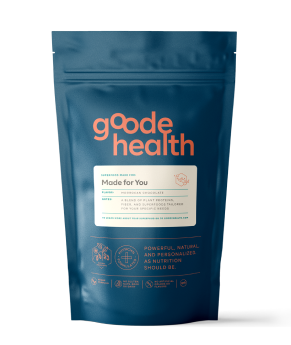
Berberine: This Plant-Based Supplement Has Many Benefits
Berberine: This Plant-Based Supplement Has Many Benefits
The plant-based supplement berberine has been getting a lot of attention lately because some studies show that it can have an impact on blood sugar and insulin levels in a way that may support weight loss. On social media, posts about berberine have racked up millions of views and have called berberine “Nature’s Ozempic” and compared the supplement to the popular diabetes drug that is now frequently being prescribed for weight loss. “Although top-tier proof of weight loss is lacking, there is a meta-analysis showing significant impact on the all-important waist to hip ratio”, says Dr. Bob Arnot.
Before jumping on the berberine train, we suggest taking a few minutes to learn more about it below.
What is Berberine?
Berberine is a bright yellow compound that can be found naturally in plants, more specifically in a group of shrubs called Berberis (also called barberry). For thousands of years, this supplemental compound has been used in traditional Chinese and Ayurvedic medicines to soothe stings, bites and treat issues like diabetes, infection and jaundice. By itself, the compound is a potent yellow and is rather bitter tasting.
How does Berberine work?
The studies that have been done on berberine have shown that it acts as an antioxidant and can decrease blood sugar and cholesterol, as well as improve resistance to insulin. The way berberine does this is by activating an enzyme in the body called AMPK, which helps to regulate metabolism. AMPK can be found in the cells throughout our body and is known as AMP-activated protein kinase.
What are the benefits of Berberine?
There have been various claims for the benefits of Berberine, but at Goode Health, we only look at the most researched and compelling studies. Here’s what we know:
- Berberine may help you lose weight by regulating your metabolism via decreasing insulin resistance and increasing insulin secretion. In simpler terms, this supports insulin sensitivity, potentially lowering insulin levels, as well as blood sugar levels, leading to a metabolism that could promote weight loss.
- Berberine can lower your cholesterol levels, which may lead to a reduced risk of heart disease.
Are there any risks to using Berberine?
Like most natural plants, berberine is generally regarded as safe for consumption. However, consuming it in high doses, especially among certain populations, could pose a risk. A study from Nature showed that for people who already have lower blood sugar due to medications or hypoglycemia, berberine may drive their blood sugar too low, leading to significant medical issues.
Why did we add Berberine to our Wellness Blend?
At Goode Health, berberine is included in our Metabolism Boost for our Wellness Blend (at 230mg). The ingredient is paired with ginger and cinnamon to create a trio of nature’s superfoods designed to even out the body’s blood sugar levels, which helps keep your energy levels more consistent. Each of the three ingredients have received support from clinical studies for controlling insulin levels and supporting healthy blood sugar levels.
Additionally, our goal is to address the issue of “nutrient hunger” with the highest-quality ingredients that are plant-based, 100% natural and nutrient dense. Our Metabolism Boost takes this a step further by mixing berberine, ginger and cinnamon, which all are supported by several studies, into one powerful mix. Then, our booster is paired with four kinds of high-grade plant-based protein, plus a prebiotic fiber, a unique mix of polyphenol antioxidants, and CORE8™ Micronutrients: Vitamins A, C, D, E, and Iron, Potassium, Calcium and Magnesium.
To learn more about our Wellness Blend and unlock personalized wellness recommendations based on your needs, take our nutritional quiz, HERE.
NOTE: As is prudent with any new dietary plan, its best to consult with your healthcare professional to understand the implications unique for you.







